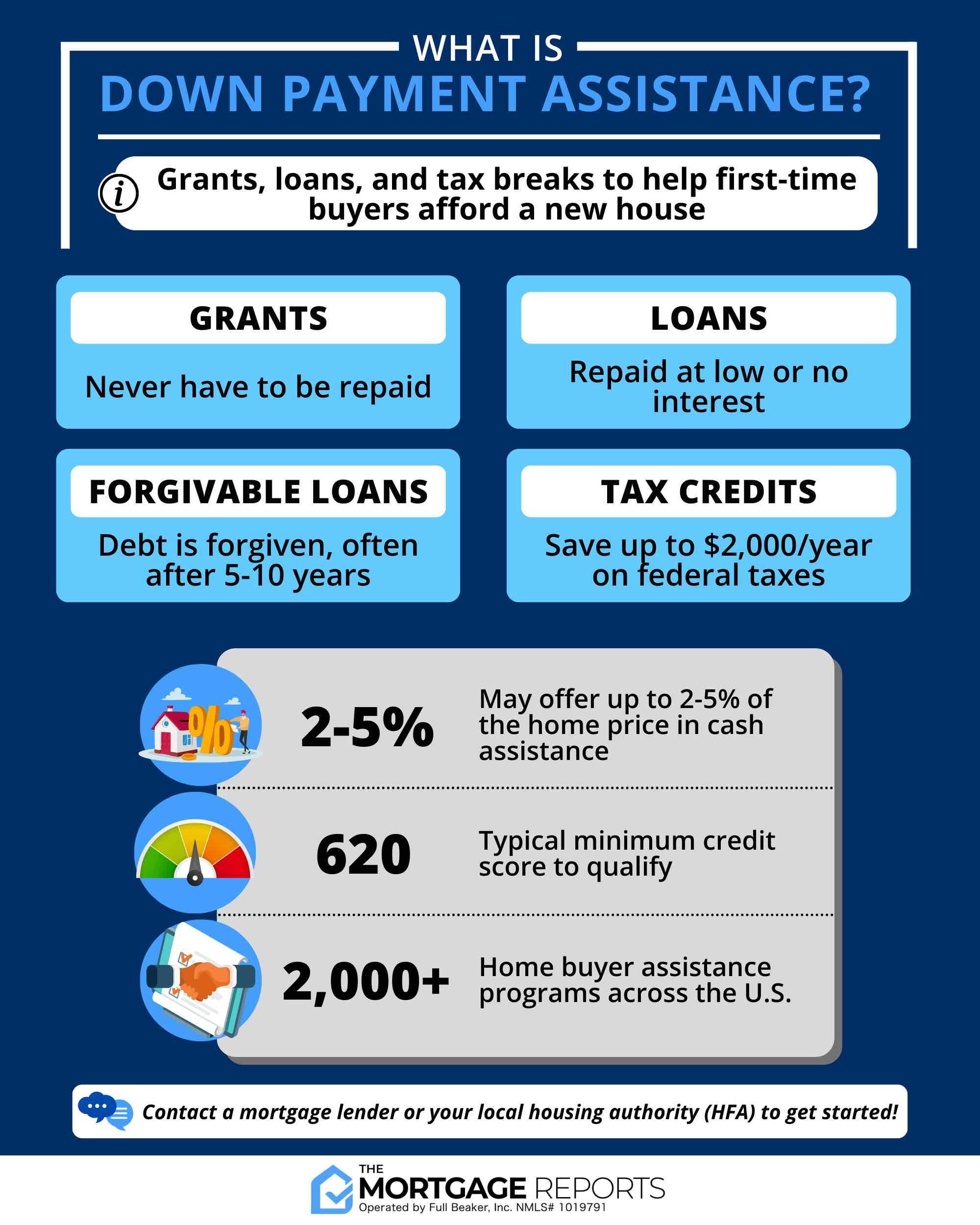Navigating the landscape of home ownership can be as intricate and daunting as a labyrinth. As 2024 unfolds, the dream of owning a home seems distant for many, with the ever-soaring prices of real estate. However, amid these challenges lies a beacon of hope for aspiring homeowners. Enter the world of first-time home buyer grants, a realm where dreams morph into reality through a series of financial boosts designed to clear the pathway toward homeownership. This comprehensive guide is tailored to illuminate the ins and outs of securing these grants, providing a sturdy bridge over the financial hurdles of buying your first home. Whether nestled in the heart of a bustling city or in the serene outskirts, let this guide serve as your reliable compass in the journey to purchasing your first home. Join us as we explore the most recent and beneficial grants for first-time home buyers in 2024, ensuring you are equipped with all the essential knowledge to claim your slice of personal paradise.
Table of Contents
- Understanding First-Time Home Buyer Grants: What You Need to Know
- Eligibility Criteria for First-Time Home Buyer Grants
- Exploring Different Types of Home Buyer Grants Across the U.S.
- How to Apply for a Home Buyer Grant: A Step-by-Step Guide
- Final Thoughts

Understanding First-Time Home Buyer Grants: What You Need to Know
Navigating the landscape of first-time home buyer grants can be both exciting and daunting. These grants are designed to ease the financial burden on first-time buyers, potentially opening up possibilities that might otherwise be out of reach. Here’s a deeper look into how these grants work and what you should consider before applying.
Eligibility Requirements
Eligibility for first-time home buyer grants varies widely depending on the program and your location. Typically, these programs have income limits and require the buyer to contribute a minimum percentage of the purchase price. Most programs are designed for low to moderate-income families. Additionally, you might need to be a resident of the area where you are buying the home and be a U.S. citizen or permanent resident.
Types of Grants
Grants come in different forms:
- Federal Grants: Offered nationwide and backed by government agencies.
- State and Local Grants: These are specific to certain areas and can vary greatly between states and districts.
- Private Grants: Offered by private organizations, these can have specific eligibility criteria tailored to the objectives of the offering entity.
How to Apply
Application processes can differ widely between programs:
- Start by researching to find available grants in your area.
- Visit the official website or the office that administers the grant to get the application form and details.
- Prepare the necessary documents, which typically include proof of income, employment verification, and a credit report.
Consider the deadlines carefully; some grants are awarded on a first-come, first-served basis while others have specific annual cycles.
Comparing Popular Grants
| Grant Program | Location | Max Amount |
|---|---|---|
| Federal Home Loan Bank | Nationwide | $7,500 |
| HOME Investment Partnerships | Varies | $10,000 |
| First Home Grant | Selected States | $5,000 |
Utilizing the Grant
Once approved, it’s crucial to understand how the funds can be used. Some grants are strictly for down payments or closing costs, while others cover broader home-buying expenses. Be sure to review the terms of the grant thoroughly to avoid any compliance issues, which might lead to having to repay the funds.
Additional Considerations
While these grants can provide significant financial relief, they may come with conditions such as owning the property for a certain number of years to fully benefit from the grant. Violating these terms could result in penalties. It is also practical to consider the impact of the grant on taxes, as some might require you to report them as income.
Understanding your responsibilities and the full scope of how a grant can aid your home buying process will set a solid foundation for your new homeowner journey. Ensure you meet with a financial advisor or a grant counselor who can provide clarity and guide you through the intricate process of home buying.

Eligibility Criteria for First-Time Home Buyer Grants
Navigating the world of first-time home buyer grants can feel like deciphering a complex puzzle. If you’re looking to set foot on the property ladder, understanding the eligibility criteria is your first step. Here’s what you need to know to determine if you can tap into these valuable resources.
Residency Requirements: Most grants are specific to residents of certain states, cities, or counties. Ensure you check that your area is covered by the grant you are interested in. Some grants might also require you to have lived in the area for a certain period.
Income Limits: Typically, there are caps on how much you can earn to qualify for first-time home buyer grants. These thresholds are usually set as a percentage of the area median income and can vary considerably between different grants and regions.
First-Time Home Buyer Status: Most programs define a first-time buyer as someone who hasn’t owned a primary residence in at least three years. If you owned a home more recently, scour for exceptions—some programs extend eligibility to those who lost a home due to a divorce or other extenuating circumstances.
Credit Score: A healthy credit score is often crucial. Minimum score requirements can vary, so it’s worth improving your credit score in preparation for your application:
- Paying bills on time
- Reducing your debt-to-income ratio
- Checking for errors on your credit report
Property Types: Some restrictions may apply to the type of property you can purchase, whether it’s a detached home, a condominium, or a duplex. The property will likely need to meet certain standards of habitability and value, which will be verified through an appraisal.
| Grant Program | State/City | Income Cap |
| Homestead Starter Grant | California | 80% AMI |
| Urban Pioneers Fund | Illinois/Chicago | 120% AMI |
| Liberty First Loan | Pennsylvania/Philadelphia | 100% AMI |
| River District Access Grant | Oregon/Portland | 100% AMI |
Occupancy: Generally, you’ll need to reside in the home as your primary residence for a set period, ranging from a few years to the length of the mortgage. This commitment makes sure the program benefits genuine homeowners rather than investors.
Each grant has its unique tapestry of rules and regulations, so thorough research and preparation are key. By meeting these criteria, you can unlock valuable financial support that turns your dream of homeownership into a reality.
Exploring Different Types of Home Buyer Grants Across the U.S
The United States offers a plethora of opportunities for first-time home buyers, with grants that vary significantly from state to state and city to city. Understanding these can significantly impact your ability to purchase a new home, especially if you are navigating the complex housing markets for the first time. Let’s delve into some notable grants and programs available in various parts of the country.
Federal Programs
First up, federal grants are consistent across the states. The U.S. Department of Housing and Urban Development (HUD) provides several options, including the Good Neighbor Next Door initiative, designed for professionals such as teachers, firefighters, and police officers. This program offers a substantial 50% off the list price of homes in revitalization areas.
California: The Golden State’s Golden Offers
California often leads with its innovative approaches to housing assistance:
- The CalHFA MyHome Assistance Program offers a deferred-payment junior loan of up to 3.5% of the purchase price or appraised value to cover down payment and/or closing costs.
- California’s School Teacher and Employee Assistance Program focus specifically on teachers, providing up to $15,000 in down payment assistance.
New York: Empire State of Mind
In New York, prospective buyers can look at:
- The Achieving the Dream program, which provides low-interest rate mortgages for low-income, first-time home buyers.
- The Homes for Veterans Program that assists military veterans with favorable interest rates and down payment assistance.
| State | Program | Benefit |
|---|---|---|
| Texas | Homes for Texas Heroes | Grant up to 5% of loan amount |
| Florida | Florida First | $7,500 in assistance |
| Illinois | 1st Home Illinois | $7,500 towards down payment |
Georgia: Peach State Perks
Georgia’s programs are particularly generous, offering both statewide and localized options. The Georgia Dream Homeownership Program is a standout, giving up to $5,000 in down payment assistance to qualifying first-time home buyers across multiple occupations, including healthcare workers, educators, and police officers.
Adapting to Regional Differences
Each state offers unique advantages through their programs focused on assisting first-time home buyers. It’s crucial for potential buyers to research and understand the specific requirements and benefits of each program. Local real estate agents can be invaluable in navigating these regional variations and identifying the programs that would make the most difference to a buyer’s financial needs.
Summing up, the diverse range of first-time home buyer grants across the U.S provides significant opportunities for homeownership. By offering everything from down payment assistance to favorable loan terms, these programs help make the dream of owning a home a reality for many Americans. It’s an exciting time for potential homeowners, with plenty of supportive pathways paving the way to purchasing your first home.

How to Apply for a Home Buyer Grant: A Step-by-Step Guide
Securing a home buyer grant can be a game changer for first-time buyers. The process, though involved, can significantly ease the financial burden of purchasing your first home. Here’s your straightforward guide to applying for a home buyer grant.
Step 1: Understand Your Eligibility
Before you dive into applications, it’s crucial to understand the specific eligibility criteria for each grant. Typically, these criteria may include factors like income level, the area of the home, and whether you’ve owned a home before. Checking these details early can save you from the frustration of pursuing grants for which you don’t qualify.
Step 2: Research Available Grants
Start by researching government websites, local housing authorities, and nonprofit organizations to compile a list of potential grants. Make sure to note the different purposes of each grant, such as whether they cover closing costs, down payments, or something else entirely.
Step 3: Prepare Necessary Documentation
Gather all necessary documentation early in the process. Commonly required documents include tax returns, pay stubs, employment verification, and credit reports. Having these documents ready can expedite your application process.
Step 4: Attend a Homebuyer Education Course
Many grant programs require applicants to complete a homebuyer education course. These courses not only help bolster your application but also ensure that you are well prepared for the responsibilities of homeownership.
Step 5: Apply for the Grant
Applications can typically be submitted online, by mail, or in person. Ensure that you fill out the application form meticulously, attaching all required documentation. Missing or incorrect information can delay or derail your application.
Step 6: Follow Up
Once your application is submitted, don’t hesitate to follow up. Keeping in contact with the grant provider can demonstrate your commitment and eagerness in the homeownership process.
Step 7: Consider Multiple Grants
You don’t need to limit yourself to one grant. In many cases, you can apply for multiple grants simultaneously, stacking them to cover various costs associated with your home purchase.
Here’s a simplified timetable using WordPress table styling to help you manage the application deadlines and requirements for multiple grants:
| Grant Name | Application Deadline | Document Submission | Required Course Completion |
|---|---|---|---|
| Local Housing Grant | April 1, 2024 | March 15, 2024 | Yes |
| State Subsidy for First-Timers | May 20, 2024 | May 5, 2024 | No |
| Eco Home Initiative | June 10, 2024 | May 25, 2024 | Yes |
By following these steps and keeping organized, especially with potential multiple applications, you’ll increase your chances of success in receiving a home buyer grant. Remember to stay patient and persistent throughout the process.
Final Thoughts
As we wrap up our exploration of the dynamic world of first-time home buyer grants for 2024, it’s evident that the path to homeownership is brimming with possibilities. Armed with the knowledge of various grants and the strategies to access them, you are now better positioned to turn the key into a door that opens to your own home. Remember, each grant has its own set of maps and keys—diligence and understanding are your best tools in navigating this terrain. So, step forward with confidence, and let your journey to homeownership be a testament to informed decisions and newfound opportunities. Here’s to new beginnings in a place you can call your own!
